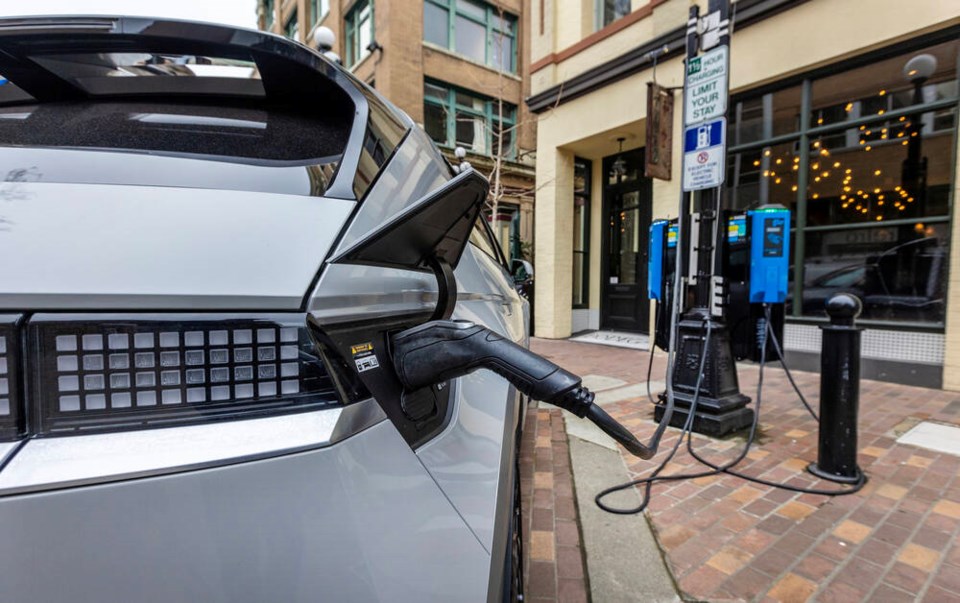In a bid to draw down carbon emissions from tailpipes, the federal government is kicking in another $14.9 million to help expand the network of electric vehicle chargers across the country.
Natural Resources Minister and North Vancouver MP Jonathan Wilkinson made the announcement in front of a bank of EV charging stations at Park Royal in West Vancouver on Friday.
The funds should see the installation of 3,205 new chargers. Fifty of those chargers have already been installed at Park Royal. Another 24 will go near public parks in North Vancouver, Wilkinson said. Others will be spread around the country in public locations and in underground parking garages.
The move was welcomed by Trevor Melanson, communications director for Clean Energy Canada, who said the lack of nearby charging infrastructure is one of the biggest hang-ups the public has when it comes to transitioning away from gas- and diesel-powered vehicles.
“Public charging isn’t just about road trips. It is a kind of public good. We have parks because not everyone has a yard, and we need public chargers because not everyone can charge at home,” he said. “Anyone who drives should be able to make an EV work for them. We’re not there yet, but these investments bring us a little closer.”
So far, the federal government has invested about $1 billion in EV charging infrastructure, Wilkinson said.
NDP pulls support for carbon tax
But the announcement comes as Canada’s signature climate change policy, the carbon tax, is facing eroding support from some of its traditional backers. Federal NDP leader Jagmeet Singh announced last week that he would no longer support a consumer carbon tax, saying it was too great a burden on working people. And BC NDP Premier David Eby said he would be seeking the federal government’s approval to remove the consumer portion of B.C.’s carbon tax.
Wilkinson characterized Singh’s flipflop as “abandoning the climate plan,” which, he said, was probably disappointing to many New Democrats. He was more surprised by Eby’s reversal, given his government’s record on climate action and the fact that B.C. was the first to adopt a carbon tax under Gordon Campbell’s BC Liberal government.
Wilkinson would not say whether the federal government would acquiesce to Eby’s request, but he said British Columbians might be better suited to the federal carbon tax model under which about 80 per cent of Canadians get more money back in rebates than they pay in carbon taxes, especially for households on lower incomes.
“Provinces are free to implement their own systems so long as they actually meet the minimum federal requirements,” he said. “If the issue that Premier Eby is raising is about affordability, then I would suggest that he look at the way in which the federal system works. It fights climate change. It does so in a manner that’s efficient but it also does so in a manner that is affordable.”
Wilkinson also took the opportunity to accuse the federal Conservatives of having no plan at all to combat climate change.
“Any thoughtful observer would understand it is a ridiculous plan that has no relation to data and to science – one that, if implemented, will impoverish our children environmentally, and as I say, economically,” he said.



